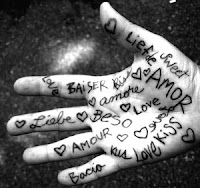
The book Translations is a prime example (not only by it's name) of how difficult it is to communicate with others. Getting your point across to people who speak your language is difficult enough, but when you throw different languages in the scenario, it is near impossbile to get your point across. The scene in the book when Yolland and Maire are talking back in forth, each not knowing what the other is saying, is a prime example of this difficulty. However, they are somewhat of an exception to the rule because they are getting each other's point across. Despite their lack of understanding one another, they have the same feelings. They both realize the draw to each other, but though they do not let their language barrier stop them, in reality I wonder if their relationship would ever work.











